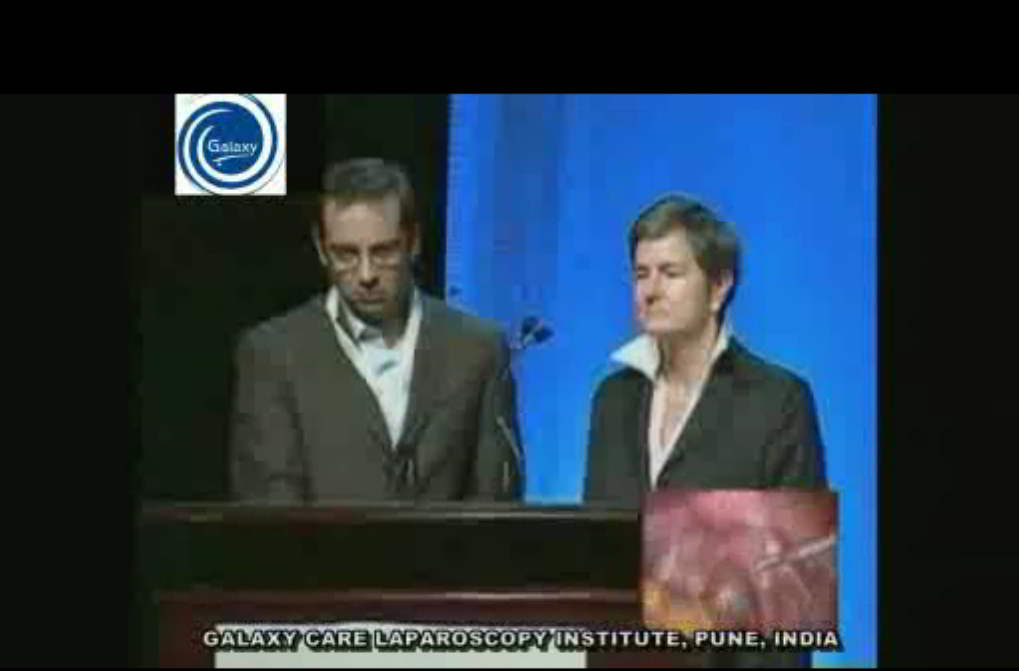India’s first uterus transplant performed on May 18 gives childless mothers a ray of hope to bear children besides encouraging many to donate organs
~By Ramesh Menon
India’s first uterus transplant was conducted at the Galaxy Care Laparoscopy Institute in Pune. The landmark surgery might encourage many to donate organs. The 26-year-old patient from Vadodara was all smiles before the operation at 9 am today as it gave it a new hope of conceiving after getting her mother’s womb. The eight hour surgery ahead did not rattle her. She had gone through a lot of trauma for the last eight years after marriage trying to have a baby. Now, there is a new hope-after losing two babies in previous pregnancies, four abortions and a scarred uterus.
She hopes the womb transplant will now help her bear a child. At last.

The complicated transplant operation was headed by Dr Shailesh Puntambekar, consultant oncosurgeon and Laparoscopic Oncosurgeon. He was assisted by Dr Sanjeev Jadhav, vascular surgeon; Dr Milind Telang, gynaecologist and Dr Pankaj Kulkarni, infertility specialist. Dr Bhushan Kinholkar will look after intensive care after the operation that is very crucial for success.
Dr Sailesh Puntambekar told India Legal that this landmark operation will give a new hope to many women who do not have a uterus and want to have a baby. “We are very confident as we have taken great care to select the donor and the recipient after conducting numerous tests. We are hoping for the best,” he said.
Another womb transplant is scheduled for today at the hospital for a 22 year old patient born without a uterus. The third transplant is to be conducted in June. All the three women have different uterine complications and donors are their mothers.
Dr Sailesh Puntambekar told India Legal that this landmark operation will give a new hope to many women who do not have a uterus and want to have a baby. “We are very confident as we have taken great care to select the donor and the recipient after conducting numerous tests. We are hoping for the best,” he said.
They will all be closely monitored by the doctors for 24 weeks. Then, fertilized embryos will be transferred into the uterus using the IVF procedure if they are in good health.
An Act which regulates organ transplantation
The Transplantation of Human Organs Act passed in 1994 is India’s primary legislation related to organ donation and transplantation. The idea behind it was to regulate the removal, storage and transplantation of human organs for therapeutic purposes and prevent commercial dealings in human organs that had taken scandalous proportions in India. Poor people were selling off their organs to meet debts or to eke out a living. It allowed transplantation of human organs and tissues from living donors and cadavers after cardiac or brain death. It also wanted to ensure that the donors were not exploited as there were too many cases of commercial dealings in transplantation.
Doctors say that these transplants will hopefully help them get pregnant. The operations of all the three are being done free of cost by the hospital.
Nearly a dozen gynecologists, endocrinologists and IVF specialists at the hospital were planning the live donor uterine transplant for a year. They first practiced on cadavers in Germany and the United States and got briefed by doctors who had done before helping them to perfect the technique.
The hospital then got its infrastructure in place before a government team inspected it before granting permission from the Directorate of Health Services in Maharashtra to conduct the transplant. They now have a licence to conduct womb transplants till 2022.
Organ donation has been a laggard in India. A lot of superstitious beliefs and fears stop people from donating their organs. Many believe that if they donate their eyes after death, they would be reborn as blind.
About 25 such transplants have taken place in the world. As there is a large possibility of rejection, both patients and doctors are on their tenterhooks. But there is always hope that it will work as it has in some cases. Out of 11 womb transplants in Sweden, seven ended in successful pregnancies.
Organ donation has been a laggard in India. A lot of superstitious beliefs and fears stop people from donating their organs. Many believe that if they donate their eyes after death, they would be reborn as blind. Counselors who try to persuade families to donate the eyes of their loved ones after they have passed away have a tough time convincing them to do so. Most of them just get shooed away, says one of them.
Even cadaver donation has not picked up. Media attention on such donations and operations can in some way create an environment for organ donation to pick up.


